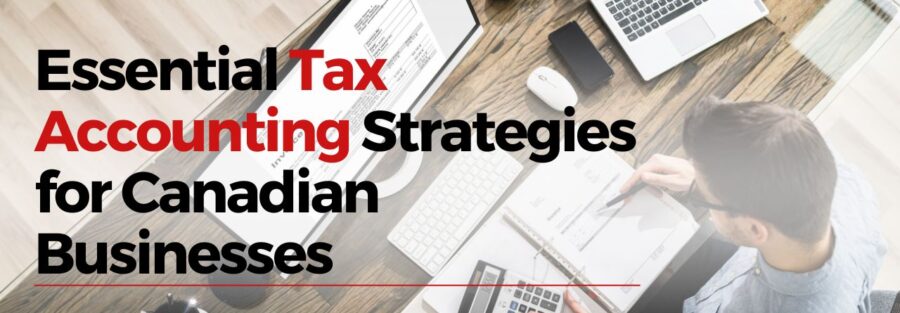Introduction:
In today’s competitive business landscape, managing tax liabilities effectively is critical to financial stability and long-term growth. Implementing strategic Tax Accounting practices can significantly reduce tax burdens, increase cash flow, and contribute to overall business success.

Explore the Following Essential Strategies for Effective Tax Management:
- Maximize Deductible Expenses
Carefully identify and claim all eligible business expenses to reduce taxable income. Common deductible expenses include rent, utilities, office supplies, professional services fees, advertising expenses, and insurance premiums. Detailed records of these expenses must be maintained to support deductions during audit.
- Depreciate Assets Strategically
Choosing the proper depreciation method and schedule can maximize tax deductions over time. Depreciable assets, such as equipment and vehicles, gradually lose value over their useful lives. Depreciation allows businesses to deduct a portion of this lost value each year, reducing their taxable income.
- Utilize Tax Credits and Incentives
Research and apply for available tax credits and incentives to reduce tax liability. Governments often offer tax breaks to encourage certain activities, such as research and development, hiring minorities or people with disabilities, and investing in environmentally friendly technologies.
- Plan for Tax Implications of Business Decisions
Consider the tax consequences of big business decisions before making them. This proactive approach can help prevent unexpected tax burdens and reduce future liabilities. For example, structuring business transactions in a tax-efficient manner can significantly affect the overall tax consequences.
- Maintain Accurate and Organized Records
Detailed financial records are essential to support tax deductions and claims during audits. Keep meticulous records of all income, expenses, assets and liabilities. Use accounting software or hire a professional bookkeeper to ensure accuracy and compliance.
- Seek Professional Tax Advice
Consulting a tax advisor can provide valuable guidance and expertise in developing a comprehensive tax strategy tailored to your business. Experienced tax professionals can identify potential tax savings opportunities, navigate complex tax laws, and help you stay compliant with ever-changing regulations.
Conclusion:
By implementing effective Tax Accounting strategies, businesses can maximize tax savings, reduce liabilities, and increase their financial well-being. Remember, tax laws are complex and subject to change, so it’s important to seek professional advice to ensure compliance and optimize tax outcomes.





